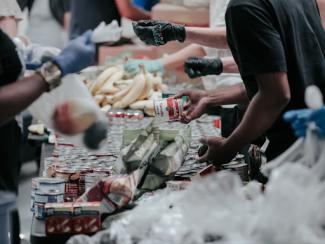
It was late May, and spring decided to head into hibernation early. Heat and humidity were invading much of the U.S. as an estimated 26 million marched against police brutality in the wake of George Floyd's murder. As their hope dwindled, help came from an unexpected place.
Black chefs from around the country banned together to feed protestors for free while they fought for racial justice. This isn’t the first time, however, that Black folks have pushed to find ways to help the hungry.
The Food Justice Movement began as an act of rebellion and solidarity against white supremacists suppressing desperately needed funding to starving Black Mississippi farmers in the 1960s. The Black Panther party continued this trend of feeding the hungry with their free breakfast program.
The modern movement continues on this path of rebellious solidarity. Those involved strive to not only ensure that the 29% of food insecure Black households are fed, but that the injustices in agriculture, land ownership, and distribution are addressed and corrected.
Our community is strongest when it's fed and unified. Those involved in the Food Justice Movement have banded together in spirit and mission to do the work for our people. They are setting the bar for what can be achieved when we take our skills and work together to improve the lives of every Black person around us.